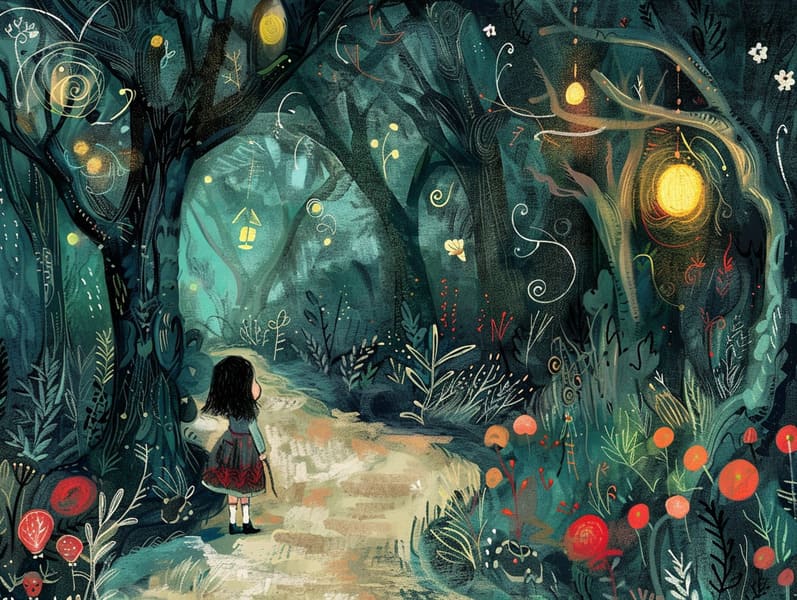
Evening is a cherished time for families. It’s a chance to ease into rest, hug close, and revel in the enchantment of nighttime tales.
For years, evening stories for little ones have been a adored legacy, offering more than just a way to drift off. They provide an prospect for togetherness, development, and stimulating dreams.
Understanding the Importance of Bedtime Stories
Stories for kids at bedtime do more than a way to end the day. They play a key role in a child’s progress and in fortifying the parent-child tie. Here’s why they make a difference:
1. Connection Time: Storytime before sleep develops a special bonding moment between caregivers and children. It’s a moment of attachment that helps children feel cherished and reassured.
2. Speech Improvement: Hearing tales helps children develop their language skills. They learn new vocabulary, understand form, and develop their hearing and interpretative skills abilities.
3. Imagination and Creativity: Narratives for little ones lead them to enchanted worlds, encouraging fantasy. They visualize characters, settings, and adventures, which ignites their creativity.
4. Emotional Understanding: Kids' tales often present characters facing trials and emotions. These scripts help kids handle and address their own emotions, enhancing emotional growth.
5. Brain Growth: Paying attention to a narrative helps children develop attention span, memory, and analytical skills. They learn to follow lines of thought, remember elements, and foresee consequences.
Making Stories a Bedtime Habit
Building a nightly ritual that includes narrating bedtime stories is effortless and worthwhile. Here’s how to make it a important part of your sleep-time tradition:
1. Pick a Snuggly Spot: Opt for a comfortable place where you and your child can nestle in without distractions. A cozy bed or a quiet reading nook works well.
2. Choose a Set Time: Set a consistent time each night for reading. Predictability helps children be accustomed and makes the custom more sustainable.
3. Pick Stories for Their Age: Choose tales that fit your child’s developmental stage. Toddlers might enjoy illustrated books with simple narratives, while older kids may be drawn to books with chapters with more detailed stories.
4. Get Involved with the Story: Try to the tale become real by trying different voices for characters, adding special sounds, and having your child to join in. Ask stuff about the story to keep them listening.
5. Make a Peaceful Setting: Lower the lights, use quiet tones, and create a relaxing environment to help your child wind down.
Best Bedtime Story Sources
There are abundant sources where you can find fantastic bedtime stories for children. Here are some ways to consider:
1. Kids’ Literature: Look at your local library or bookstore to find a large selection of bedtime stories for kids. Browsing the aisles together can be a great activity that also gives children to get stories that interest them.
2. Online Sources: There are many websites that offer free read aloud stories bedtime stories. Sites like Storyberries provide a variety of short stories for kids that you can get for free. These platforms are great for finding new and diverse stories without cost.
3. Audiobooks and Apps: For nights when you’re too tired to read, look into audiobooks or storytelling apps. These can provide a gentle reading to read your child a story, ensuring they still get their bedtime story fix. Apps often offer engaging components that can engage children further.
4. Unique Stories: Craft your own stories reflecting your child’s preferences. Personalized stories can be remarkably engaging and meaningful. You can incorporate your child in the writing process, making them a part of the adventure.
Advantages of Short Stories
Quick stories for bedtime are especially effective for bedtime. They provide all the plusses of longer stories but are more concise, making them perfect for getting ready for bed before sleep. Here’s why short stories are a great choice:
1. Effortless to Follow: Compact stories are direct and simple for kids to grasp, even after a long day. They can easily grasp the plot and enjoy the story without becoming distracted.
2. Immediate Attention: These stories rapidly engage children, seizing their interest and interest. This makes them excellent for keeping bedtime habits manageable yet enjoyable.
3. Various Options: Quick stories make possible for variety in your bedtime reading. You can choose a different story each night, keeping the habit exciting and exciting for your child.
4. Efficient Use of Time: For busy parents, to-the-point tales are a time-efficient way to ensure children still get their nightly dose of storytelling. They fit well into a tight schedule while still offering the full advantages of a bedtime story.
The Magic of "Read Me a Story"
The simple phrase, “Can you tell me a story?” can unlock a world of magic for children. Agreeing to this request not only meets a child’s request for attention and engagement but also fosters lasting experiences. Here’s why it’s special:
1. Attachment: Storytelling to your child creates a deep emotional relationship. It’s a time for attachment, sharing, and bonding.
2. Heritage: Building a bedtime story practice creates a prized tradition that children wait for every night. It’s a practice that can be continued through generations.
3. Development Together: As you tell tales, you’ll observe your child’s development and advancement. Their responses, reactions, and understanding of the stories evolve, offering insights into their developing minds.
4. Protective Space: Bedtime stories provide a safe space for children to examine emotions, face fears, and find comfort in the reliable presence of a parent.
In Closing
Sleep stories for kids are a powerful tool for encouraging a child’s progress and developing unforgettable occasions of bonding.